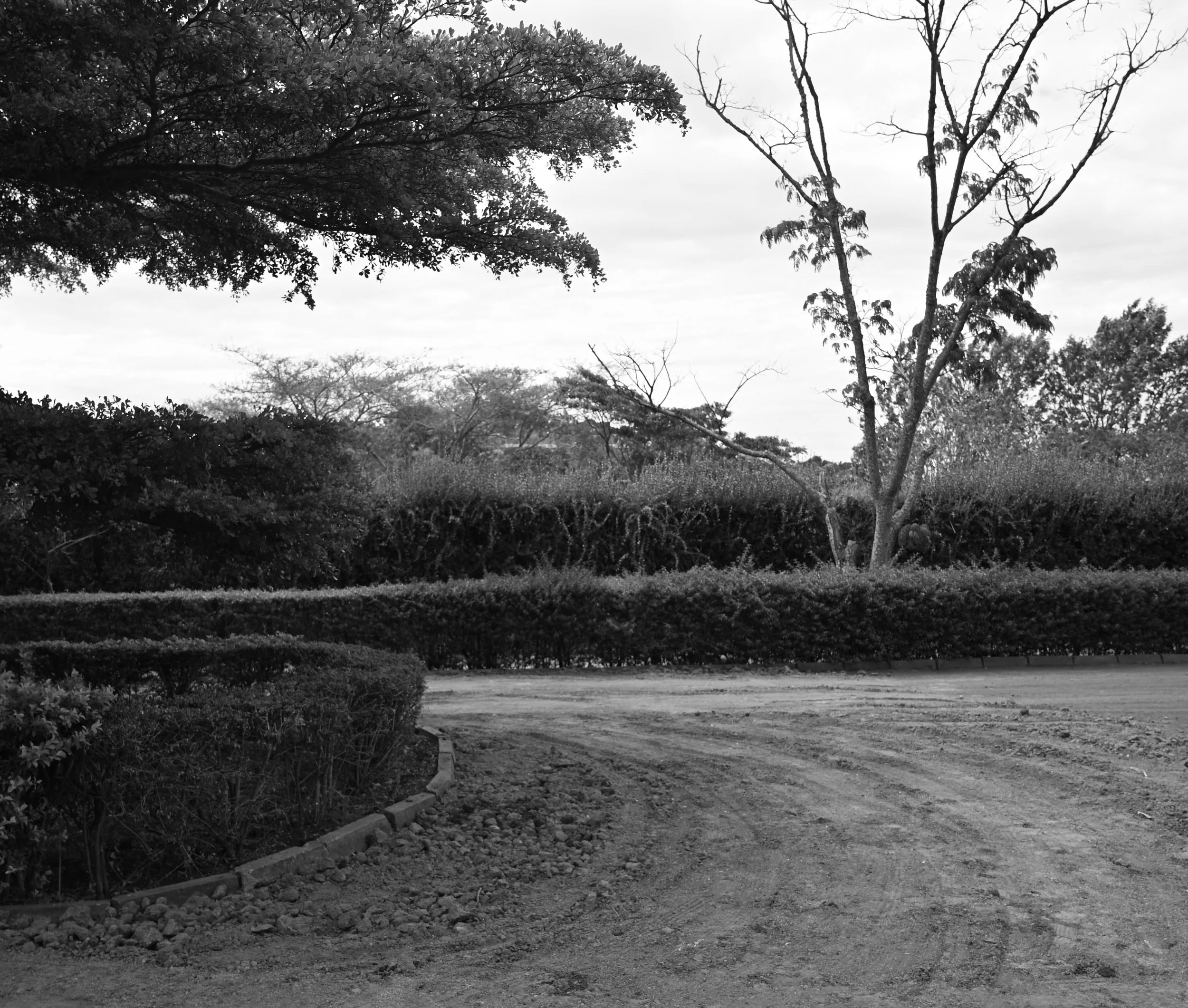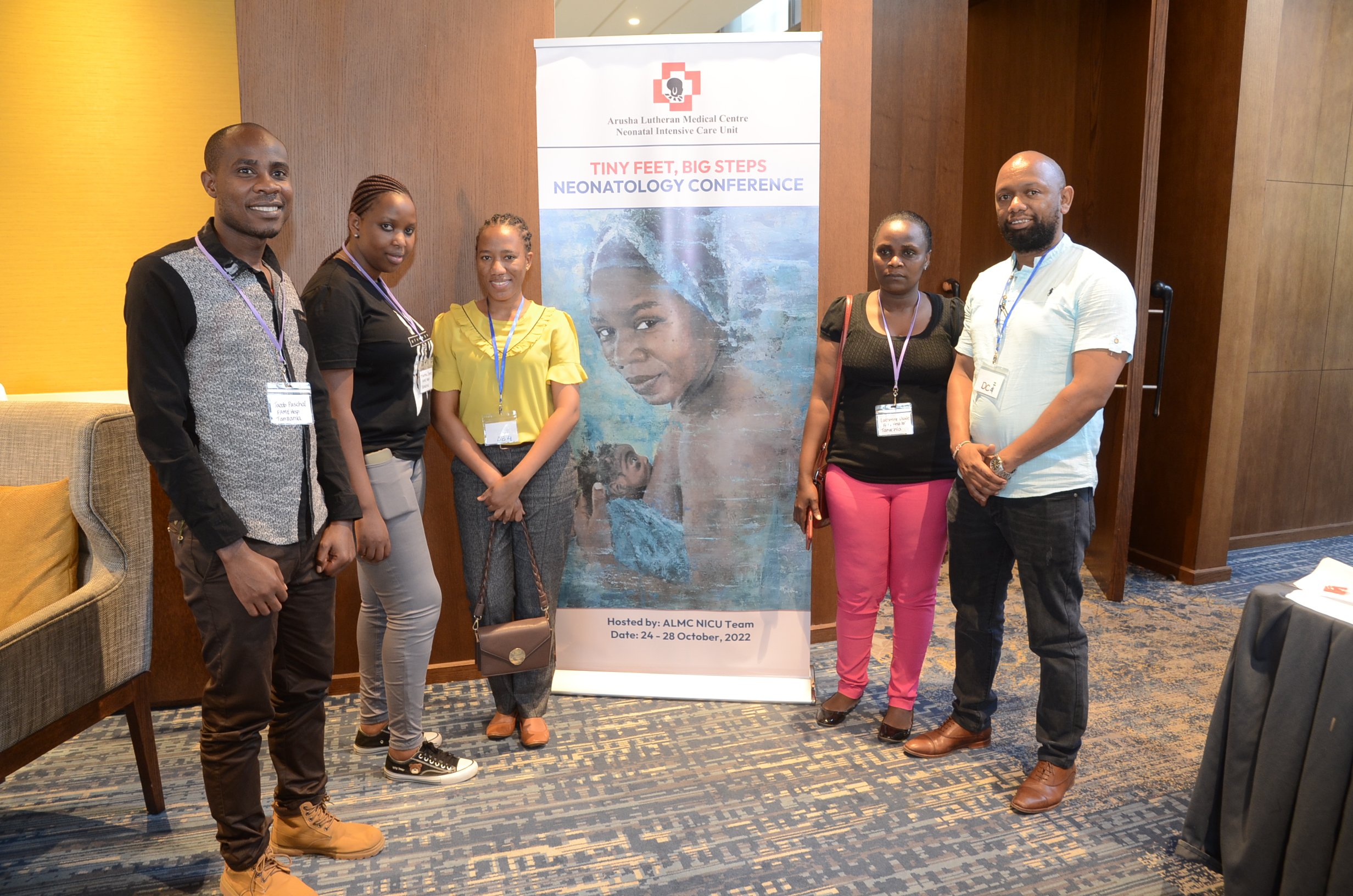FAME celebrates International Volunteer Day! As an organization dedicated to learning, education and capacity building, FAME’s volunteer program is crucial to our mission. Built on a foundation of collaboration, volunteers work hand in hand with the FAME team to gain local knowledge while also providing new ideas and approaches.
As part of our new strategic plan, FAME is now looking to its volunteer program more than ever to build the capacity of our team to align with the most pressing needs of the patients and communities we serve.
During the pandemic, FAME’s in-person volunteer program was put on hold. Instead, we connected with volunteer specialists from around the world via zoom. With travel resuming in 2021, FAME was able to host 22 volunteers last year across various specialties, including infectious diseases, internal medicine, nursing, neurology, OBGYN, pediatrics, radiology and surgery. In 2022, this number has continued to rise, and so far, we have hosted XX volunteers this year.
Here are the stories of three volunteers who are at FAME right now.
FAME’s Volunteer Voices
Dr. Gary Nichols, MD, Pediatrics Specialist
Dr. Gary conducting a training for the doctors.
While volunteering with a disaster response team following Hurricane Harvey in 2017, Dr. Gary met FAME volunteer Dr. Carolyn Apple. They had been assigned to work in the same response team in Texas. Dr. Gary mentioned to Dr. Apple that he had previously volunteered at a hospital in northern Ghana and was hoping to return to Africa. She enthusiastically recommended FAME and six months later, Dr. Gary first arrived at FAME.
In 2022, Dr. Gary returned for his fifth trip to FAME.
“Having worked at many medical sites around the world, I was very impressed with FAME. Everything: the housing, the volunteer coordinator, the different clinics, the hospital, the staff and the overall mission, was among the best I’d experienced. Everyone was so welcoming! The commitment to education and staff/patient welfare was exceptional. And, of course, the Ngorongoro district is so beautiful.”
Dr. Gary describes working with the Tanzanian medical team as “a two-way street.”
“I have learned as much from them as they have from me. They make volunteering at FAME a special thing. It's definitely one of the highlights of being here.”
Dr. Gary explains that the morning education meetings where he had to teach were initially slightly intimidating. However, that went away when he realized that everyone was genuinely interested in learning and was able to teach about common pediatric issues.
“I’ve discussed various issues such as pediatric orthopedics, urinary tract infections and malnutrition. The malnutrition talk has led to the development of a FAME malnutrition project with young children in the Karatu and neighboring districts, championed by Dr. Ken Karanja. The project will be launched in January 2023”
“Since my first visit, FAME has built the maternity and newborn building. This has provided much-needed space for new moms and their newborns. The staff has also grown steadily. Seeing existing staff grow in their skills and the young doctors join the team has been exciting. The new medical officers and doctors are so eager to learn! It’s a real privilege to contribute.”
Dr. Gary has advice for would-be volunteers:
“Do it and here’s why! I frequently encourage friends to consider FAME as it's an excellent organization to begin or continue as a volunteer global medicine provider. Having a background of working with other NGOs and groups around the world gives me a perspective of why volunteering at FAME is such a positive thing. FAME’s volunteer program is well established, you’ll play an active daily part in patient care, the range of patient care is stimulating and everyone at FAME is so welcoming. You’ll come away learning as much as you contribute.”
“LOVE”
Nurse Kim Hall, Family Nurse Practitioner, Faculty at UMass Medical School, Graduate School of Nursing
Nurse Hall (right) consults with FAME’s Dr. Adam Likiliwike.
“I was told you may come to Tanzania for the animals, but you will return for the people, and that has been the case for me. I enjoy working with the FAME staff and seeing rural medicine in action”
Nurse Hall first came to FAME in 2018. Four years before, she had met Dr. Frank on safari when she visited a local school in Karatu. Dr. Frank invited her to come back as a FAME volunteer and help with the diabetes clinic. She has been coming back almost twice a year since.
Nurse Hall could not come as planned in 2020 and 2021 due to the pandemic. She is back after a two-year hiatus and encountering significant changes, such as new buildings and programs, but the same warm and committed people.
Nurse Hall (second left) consulting with FAME radiologists, Japhar Hassan (left) and Onaely Mullumba (right). She is joined by volunteer Emergency Medicine Doctors Jeffrey Dan and Natalie Strokes.
“Working with the dedicated FAME staff is always an inspiration. They showed me the true meaning of teamwork every day, including on this trip, where they did some amazing work with premature babies. I have learned to be flexible and work with staff wherever needed and I am enjoying seeing the diabetes clinic get back up and running after two years. After working in a diabetes clinic in the US, I am always impressed by the work I see being done here. Anyone considering volunteer work could not find a better place to do it! Once I get here, I am never ready to leave!”
“AMAZING”
Nurse Leslie Kwiatkowski, Family Nurse Practitioner - Personal Reflection
Nurse Kwiatkowski pictured with Emergency Room nurse, Isdory Mboya.
Nurse Kwiatkowski training medical staff.Pictured: Drs Joselina Mumbee and Gabriel Kissima.
My name is Leslie Kwiatkowski, and I am a Family Nurse Practitioner in Washington, D.C. I work at a community health center in one of D.C.’s most under-resourced areas to provide healthcare to families and individuals often struggling with poverty and homelessness. I first became aware of FAME through Nurse Barb, a nurse practitioner and FAME board member, when she assisted me with an assignment for my doctoral program two years ago. I was to find a leader actively building community and making an impact nationally or globally; most importantly, they couldn’t be someone I already knew. The American Association of Nurse Practitioners (AANP) showcased Nurse Barb on their podcast. When she mentioned her work at FAME in Tanzania, I couldn’t type an introduction email fast enough. I was ecstatic to hear someone so passionate about the country I was lucky to have served in during my time in the Peace Corps from 2015-2017. Barb agreed to an interview and spent hours sharing her leadership style of staying open-minded and curious and how those tie into the important work of FAME hospital, a mission she is so proud to be a part of. I immediately knew that volunteering at FAME would provide me the perfect arena to blend many loves of my life: family medicine, travel and intercultural learning. I was initially nervous about volunteering, as I thought I didn’t know much about tropical medicine, but I had to let that go quickly. I told myself that if I made one friend or made one person’s life a little easier, my time at FAME would be a success. My anxiety waned significantly after numerous Zoom calls with board members, fellow volunteers and hospital staff to introduce me to key players and help me to set expectations for myself. My first impression was how intelligent and passionate the FAME staff was when I arrived. Being a Nurse Practitioner, I straddle the medical and nursing worlds and was grateful for the opportunity to spend time equally with doctors and nurses. Working alongside individual team members helped me learn from each patient interaction which sharpened my clinical skills. I then suggested improved methods such as efficient charting, appropriate lab ordering and updates to chronic disease management. I also had the opportunity to lead cervical cancer screening and diabetes management education sessions, complete with the educational and organizational resources I use in my practice.
I will come back to volunteer at FAME as often as they allow me!
“Connecting cultures by way of compassionate healthcare.”





























